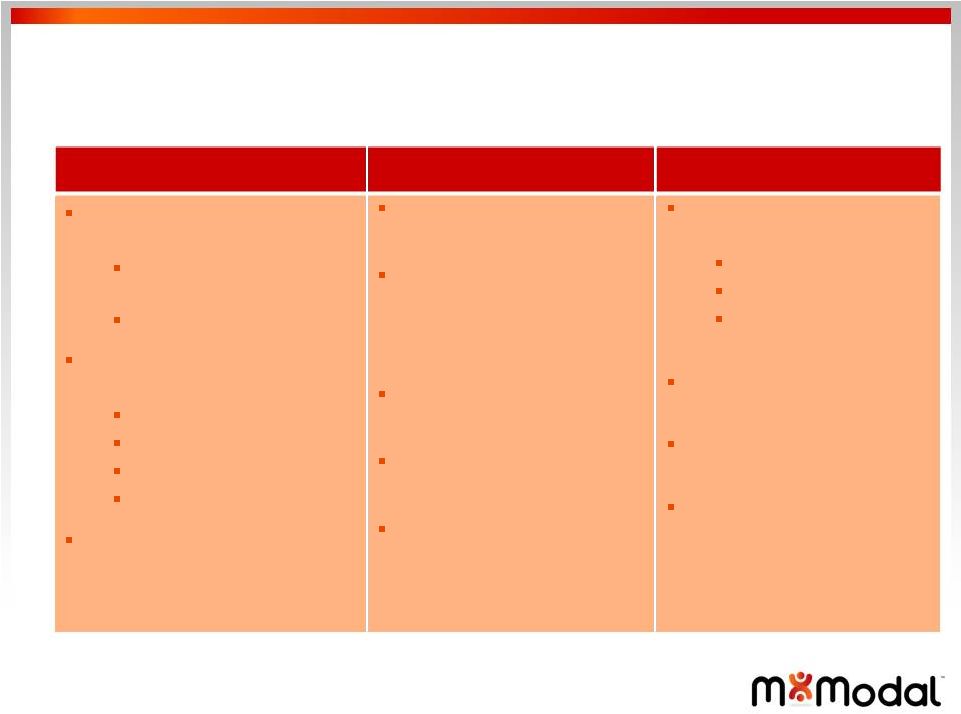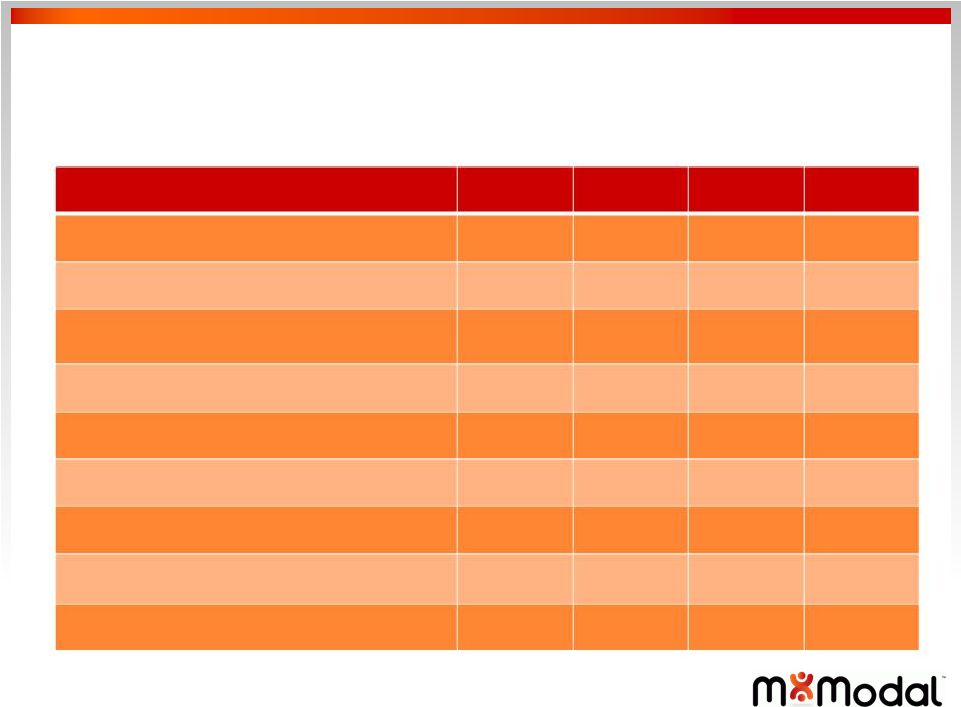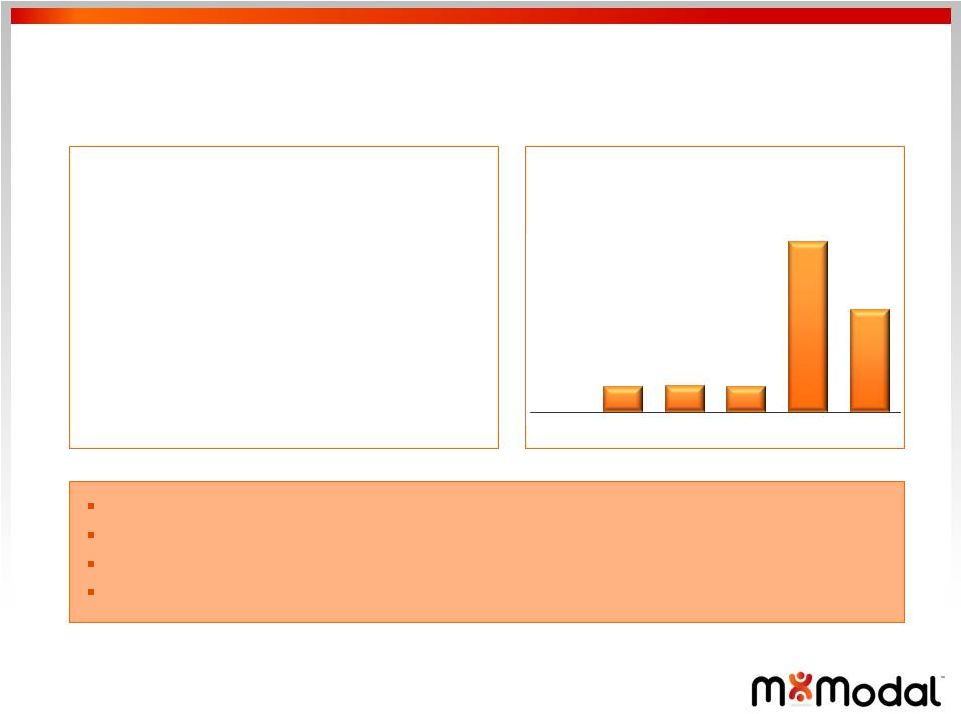23 Collaborative Intelligence for Health – © 2012 MModal IP LLC, All rights reserved. – Confidential Information Adjusted EBITDA Adjusted EBITDA is a metric used by management to measure operating performance. Adjusted EBITDA is defined as net income attributable to MModal Inc., as applicable, plus net income attributable to noncontrolling interests, income taxes, net interest expense, depreciation and amortization, cost (benefit) of legal proceedings, settlements, and accommodations, acquisition and restructuring charges, discontinued operations, equity in income of affiliated company, share-based compensation and other non-cash awards, realized gain on settlement of foreign currency hedges, excluding other (income) expense. The realized gain on settlement of foreign currency hedges is a component of other (income) expense, as reported in the Consolidated Statements of Operations. Share-based compensation and other non-cash awards represents only the portion of such expense that is a component of selling, general and administrative expense, as reported in the Consolidated Statements of Operations, as it excludes such expense attributable to the Company’s restructuring actions. We present Adjusted EBITDA as a supplemental performance measure because we believe it facilitates operating performance comparisons from period to period and company to company by backing out the following: • potential differences caused by variations in capital structures (affecting interest expense, net), tax positions (such as the impact on periods or companies for changes in effective tax rates), the age and book depreciation of fixed assets (affecting depreciation expense); • the impact of non-cash charges; and • the impact of acquisition and integration related charges, restructuring charges, and certain unusual or nonrecurring items. Because Adjusted EBITDA facilitates internal comparisons of operating performance on a more consistent basis, we also use Adjusted EBITDA in measuring our performance relative to that of our competitors. Adjusted EBITDA is not a measurement of our financial performance under GAAP and should not be considered as an alternative to net income, operating income or any other performance measures derived in accordance with GAAP or as an alternative to cash flow from operating activities as measures of our profitability or liquidity. We understand that although Adjusted EBITDA is frequently used by securities analysts, lenders and others in their evaluation of companies, Adjusted EBITDA has limitations as an analytical tool, and you should not consider it in isolation, or as a substitute for analysis of our results as reported under GAAP. Some of these limitations are: • Adjusted EBITDA does not reflect our cash expenditures or future requirements for capital expenditures or contractual commitments; • Adjusted EBITDA does not reflect changes in, or cash requirements for, our working capital needs; • Although depreciation is a non-cash charge, the assets being depreciated will often have to be replaced in the future, and Adjusted EBITDA does not reflect any cash requirements for such replacements; and • Other companies in our industry may calculate Adjusted EBITDA differently than we do, limiting its usefulness as a comparative measure. Non-GAAP Financial Definitions | 





















